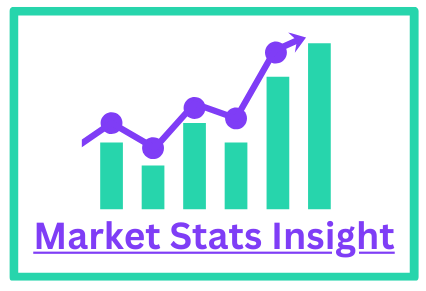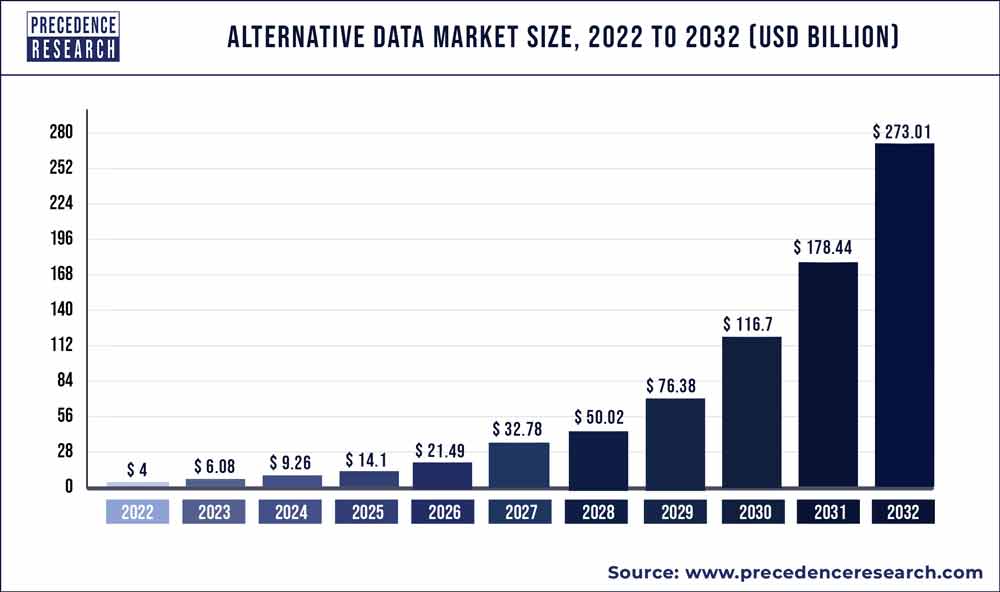North America:
- United States: The U.S. leads globally in adopting alternative data due to its highly developed financial markets and robust tech industry. Major financial hubs like New York and Silicon Valley drive demand, with hedge funds, asset managers, and fintech firms leveraging alternative data for investment strategies. The ecosystem benefits from a mature regulatory framework that, while stringent, fosters innovation and data-driven decision-making.
- Canada: Alternative data adoption is growing, especially in urban centers such as Toronto and Vancouver. Financial institutions are increasingly incorporating alternative data to enhance investment strategies, driven by a burgeoning fintech sector and supportive regulatory environment. The Canadian market shows promise for further expansion as data sources diversify and analytics capabilities strengthen.
Europe:
- United Kingdom: London serves as a global hub for alternative data usage, supported by a concentration of financial institutions and fintech startups. The UK’s regulatory environment is adaptive, evolving to balance data privacy concerns with the need for innovation in financial services. Alternative data is extensively used for equity research, trading strategies, and risk management across various financial sectors.
- Germany: Frankfurt and Berlin are emerging as centers of interest in alternative data within Europe. Financial institutions in Germany are exploring new data sources to bolster risk management frameworks and gain competitive advantages in investment strategies. Regulatory frameworks are supportive of innovation, facilitating growth in the adoption of alternative data solutions.
Asia-Pacific:
- China: Alternative data adoption in China is characterized by rapid growth, driven by technology firms and financial institutions in major cities like Shanghai and Beijing. Despite regulatory challenges, innovative approaches are being developed to navigate data privacy concerns and capitalize on the vast data sources available. Alternative data is used extensively in China for market research, consumer behavior analysis, and financial forecasting.
- Japan: Tokyo is witnessing growing interest in alternative data among financial institutions, with a focus on enhancing equity research capabilities and refining trading strategies. The Japanese market benefits from a sophisticated technological infrastructure and a regulatory environment that encourages the responsible use of data in financial decision-making.
- Australia: Sydney and Melbourne are leading the adoption of alternative data in Australia, particularly among asset managers seeking unique data insights for competitive advantage. The Australian market benefits from a stable regulatory environment that supports financial innovation while ensuring consumer data protection.
Latin America:
- Brazil: São Paulo and Rio de Janeiro are hubs of emerging interest in alternative data, fueled by fintech innovation and increasing connectivity. Regulatory frameworks in Brazil are evolving to support the integration of alternative data into financial services, facilitating new opportunities for market analysis and investment strategies.
Middle East and Africa:
- UAE: Dubai and Abu Dhabi lead alternative data adoption in the Middle East, supported by a proactive regulatory environment and a growing fintech ecosystem. The UAE market emphasizes the use of alternative data for enhancing financial services, including wealth management and digital banking solutions.
- South Africa: In South Africa, Cape Town and Johannesburg are experiencing nascent interest in alternative data among financial institutions. There’s a growing recognition of the potential of alternative data to complement traditional investment strategies, with efforts underway to harness data analytics for improved risk assessment and market insights.
Read Report: Digital Agriculture Market Size to Worth USD 49.5 Bn by 2032
Alternative Data Market Trends
Expansion of Data Sources: The alternative data landscape is rapidly diversifying beyond traditional financial metrics. This includes a wide array of sources such as satellite imagery for tracking economic activity (like counting cars in parking lots), sentiment analysis from social media to gauge consumer behavior, web scraping for gathering pricing data, IoT sensor data providing real-time insights on everything from weather patterns to industrial production rates, and more. This expansion allows for a more nuanced understanding of market dynamics and consumer trends that traditional data sources may overlook.
Demand from Asset Managers: Asset managers, including hedge funds and private equity firms, are increasingly turning to alternative data to gain competitive advantages. These data sources offer unique insights that can inform investment decisions, such as predicting company performance based on consumer sentiment trends, monitoring supply chain disruptions through satellite imagery, or assessing the operational efficiency of industrial facilities using IoT data. The demand stems from the desire to uncover hidden patterns and early indicators that traditional financial analysis might miss, thereby potentially improving portfolio performance.
Data Privacy and Compliance: With the rise of alternative data comes heightened concerns about data privacy and regulatory compliance. Stricter regulations like the General Data Protection Regulation (GDPR) in Europe and the California Consumer Privacy Act (CCPA) in the United States have prompted businesses to adopt more stringent practices in acquiring, handling, and utilizing alternative data. Ethical considerations are paramount, ensuring that data sourcing and usage adhere to legal standards and respect individual privacy rights.
Alternative Data Market Dynamics
Driver:
The alternative data market is primarily driven by the escalating demand for enhanced predictive analytics and insights that traditional data sources struggle to provide comprehensively. Conventional data often misses real-time updates and lacks granularity in understanding consumer behavior, market dynamics, and economic shifts. In contrast, alternative data sources such as social media interactions, satellite imagery analyses, and IoT device data offer more nuanced and timely datasets. These sources enable businesses across various sectors to make more informed decisions. For instance, analyzing social media sentiments can predict consumer preferences swiftly, while satellite imagery can track economic activities like shipping or agriculture in real-time. Advancements in AI and machine learning further amplify the utility of alternative data by enabling sophisticated analysis and pattern recognition in vast datasets. This combination of richer data sources and advanced analytics capabilities enhances decision-making accuracy and agility, crucial in today’s competitive landscape.
Restraint:
Privacy concerns and regulatory challenges pose significant obstacles to the growth of the alternative data market. Since alternative data often involves personal or sensitive information, regulatory frameworks such as GDPR in Europe or CCPA in California impose stringent requirements on its collection, processing, and usage. These regulations mandate businesses to ensure transparent data handling practices, obtain explicit consent from individuals, and implement robust security measures. Compliance with such laws demands substantial investments in data governance frameworks and technologies to protect data privacy effectively. Moreover, ethical considerations around consent and data ownership are increasingly pivotal, influencing both regulatory scrutiny and consumer trust. Failure to adhere to these standards can lead to legal penalties, reputational damage, and loss of customer confidence, thus hindering the broader adoption and expansion of alternative data applications.
Opportunity:
The alternative data market presents significant opportunities, particularly in untapped emerging markets characterized by rapid urbanization and digital transformation. These regions generate vast volumes of data that traditional sources often overlook or underestimate. Alternative data sources can fill this gap by providing insights into previously opaque aspects of consumer behavior, market trends, and economic activities. For example, analyzing mobile phone usage patterns in developing countries can reveal emerging market trends or economic indicators, which are crucial for strategic business decisions and investment opportunities. Furthermore, advancements in cloud computing and data analytics technologies make it increasingly feasible to collect, process, and derive actionable insights from diverse alternative data sources. This scalability and accessibility unlock new avenues for innovation and business growth globally, empowering companies to uncover hidden opportunities and gain competitive advantages in dynamic and evolving markets.
Alternative Data Market Companies
- Advan Research Corporation
- Preqin Ltd.
- 7Park Data Inc.
- Convergence Inc.
- UBS Evidence Lab
- YipitData
- Dataminr Inc.
- M Science LLC
- Eagle Alpha Ltd.
- Geotab Inc.
- Jumpshot
- JWN Energy
- Ravenpack International SL
- The Earnest Research Company
- Thinknum Inc.
- Talkingdata
Segments covered in the report
By Data Type
- Credit & Debit Card Transactions
- Email Receipts
- Geo-location (Foot Traffic) Records
- Mobile Application Usage
- Satellite & Weather Data
- Social & Sentiment Data
- Web Scraped Data
- Web Traffic
- Other Data Types
By Industry
- Automotive
- BFSI
- Energy
- Industrial
- IT & Telecommunications
- Media & Entertainment
- Real Estate & Construction
- Retail
- Transportation & Logistics
- Other Industries
By End User
- Hedge Fund Operators
- Investment Institutions
- Retail Companies
- Other End-users
By Geography
- North America
- U.S.
- Canada
- Europe
- U.K.
- Germany
- France
- Asia-Pacific
- China
- India
- Japan
- South Korea
- Malaysia
- Philippines
- Latin America
- Brazil
- Rest of Latin America
- Middle East & Africa (MEA)
Immediate Delivery Available | Buy This Premium Research Report@ https://www.precedenceresearch.com/checkout/2054

